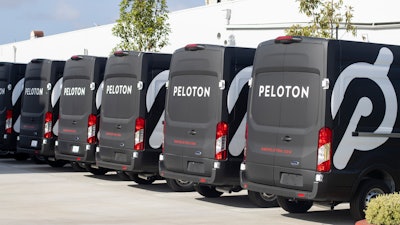
Peloton announced in July that it intends to exit all in-house manufacturing. Instead, the company wants to expand its relationship with Rexon Industrial, a Taiwanese manufacturer.
READ MORE: Peloton Will Shut Down Tonic Fitness as It Exits Manufacturing
Fictiv CEO and Co-Founder Dave Evans claimed this move by Peloton would achieve three essential goals: reducing costs, increasing flexibility and overall simplification of its supply chain via its contract manufacturer, Rexon Industrial.
“Companies like Peloton are waking up to the risks and burdens of building, operating and maintaining their manufacturing infrastructure, which puts go-to-market goals on the line,” Evans said.
According to Evans, the decision will allow Peloton to focus on designing and developing new products to meet the needs of its customers.
However, Evans said to be aware of disruption and combat it with dual and triple sourcing strategies, such as acquiring trusted manufacturing partners in geographies other than Taiwan. This would create a shorter supply chain that would not be as vulnerable to the logistics backups seen in overseas manufacturing.
Evans also stressed digitization.
“They need to ensure they have visibility into the status of production and inventory levels for all components at all times,” Evans said. “This is often a challenge with traditional contract manufacturers operating fragmented networks of tier 2 and tier 3 suppliers on legacy systems, or no system at all.”
While Evans commended Peloton’s move to outsource manufacturing, he warned about losing control. In-house manufacturing offers maximum control, but includes high operational costs and minimum flexibility.
“At Fictiv, we recommend to our customers that they should own their most critical manufacturing operations and outsource the rest,” Evans said. “That way, you get the best of both worlds to reduce risk, cut costs and increase go-to-market speed.”
---
Fictiv is a digital manufacturing ecosystem that delivers parts. Founded in 2013, Fictiv has manufactured over 19 million parts for early-stage companies and large enterprises.
 Dave EvansFictiv
Dave EvansFictiv























